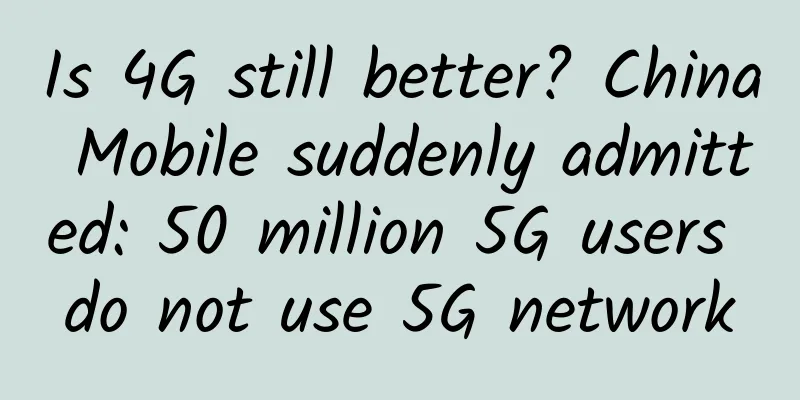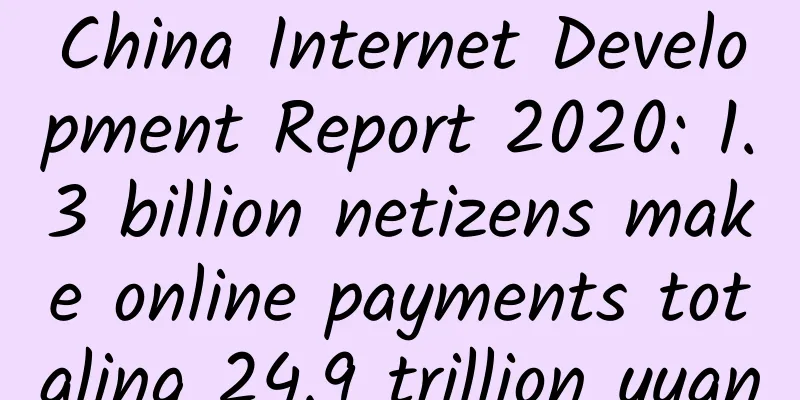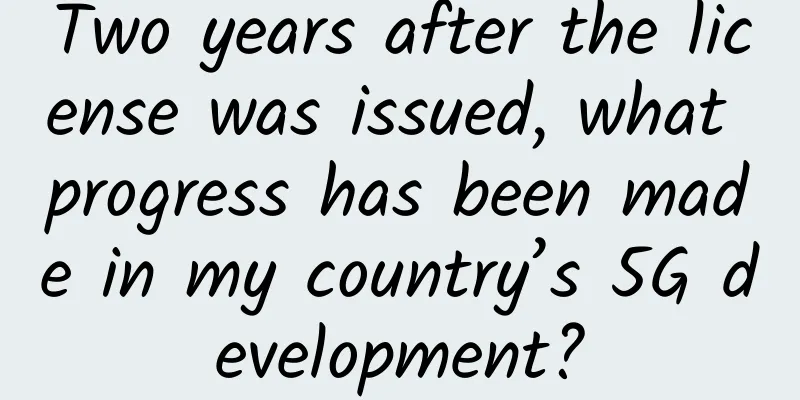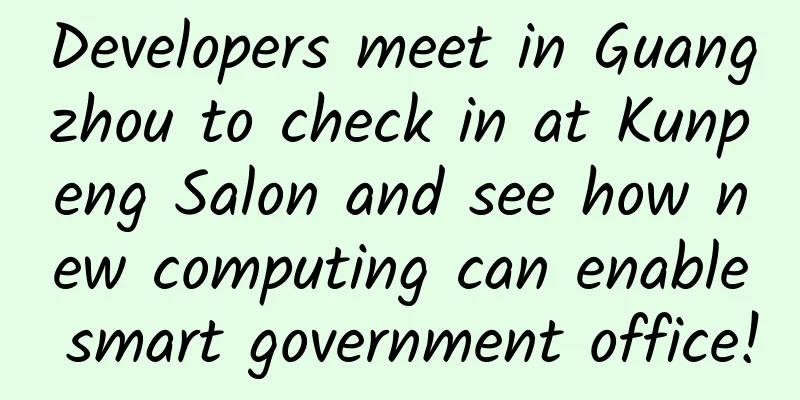Which 5G core patents cannot be circumvented by others? Huawei responds
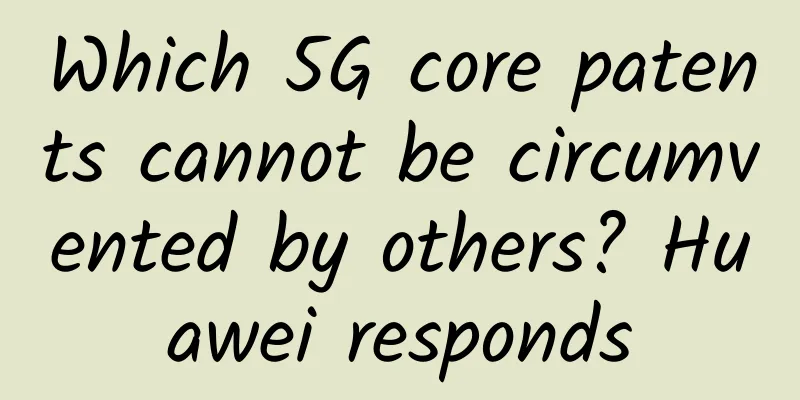
|
According to the Huawei Voice Forum on June 29, on the morning of June 27, 2019, Huawei released a white paper on innovation and intellectual property, and answered questions from Chinese and foreign reporters at a press conference held at its Bantian base in Shenzhen.
1. Reuters: Four questions: First, regarding Verizon, Reuters previously reported that Huawei demanded more than $1 billion in patent fees from Verizon. How is the current progress of this incident? How much is the patent fee being demanded? Please also explain why the request was made at this point in time? Is it specifically targeting American companies? Have you considered demanding patent fees from other operators or companies in the industry? Second, Mr. Ren Zhengfei said this month that Huawei has many patents and can collect them when it is free. Currently, Huawei's product business has been affected by US sanctions. How much is Huawei's expected revenue from patent fees in the future? Third, US Senator Marco Rubio is proposing a bill to ban Huawei from collecting patent fees in the United States. How do you view the impact of this bill? Fourth, this morning Bloomberg reported that Huawei employees participated in research projects with the Chinese military. What is Huawei's specific policy on employee participation and publication of research results, including cooperation with the military? Is it true that, as you said, employees conducted research in their personal capacity without the company's knowledge? Thank you! Song Liuping (Chief Financial Officer of Huawei): Thank you for your question. First, let me share a few thoughts on Verizon's patent licensing issue: 1) Huawei does not adopt an aggressive intellectual property policy. Instead, it aims more at protecting the global business security of its products. It is defensive in nature and will not "weaponize" intellectual property rights. We also do not advocate high licensing fees. We believe that licensing fees should be set at a reasonable level. 2) For an industry standard industry like the communications industry, patent licensing is very common and normal. All companies are engaged in licensing and cross-licensing activities in this regard, including chip manufacturers, equipment manufacturers and operators. This also includes Chinese companies, European companies, and American companies. Mutual licensing between companies has been going on for a long time, not just starting today. Huawei is one of the main holders of 3G, 4G, and 5G core patents. It is both a licensor and a licensee. As a holder of standard patents, it is a right and an obligation to obtain income through licensing. Huawei is obliged to license its patents to other industries and third parties in accordance with the principles of "fairness, reasonableness, and non-discrimination." 3) First, our patent licensing negotiation with Verizon is just a normal business negotiation and does not mean a change in Huawei's patent policy. This is an ongoing process. We have been negotiating patent licensing with industry stakeholders and it is not targeted at any specific country. Second, regarding the patent fees mentioned by Mr. Ren, as a major patent holder in important international standards, we naturally enjoy relevant rights and fulfill relevant obligations, so there will be some relevant intellectual property income. However, Huawei is still a company that focuses on product management and will not become a company that focuses on patent fees. Regarding the proposal by some American politicians to ban Huawei from enjoying patent rights, I think this is a very dangerous signal. Intellectual property protection is an important foundation for the development and innovation of the United States, and intellectual property is also protected by the U.S. Constitution. If such a law is passed, it will have a devastating impact on global innovation. Therefore, we think it is very scary if such a law is passed. Third, I would like to make a few responses to media reports that employees and military personnel jointly published papers: 1) Huawei is a company that provides civilian communication systems and ICT product solutions. Huawei does not provide specific products or research for the military. 2) We are not aware of any articles published by certain employees, nor do we have any such cooperation projects. 2. Global Times: Regarding Verizon, previous reports have pointed out that even if the United States bans Huawei from entering the US 5G market, US companies will not be able to circumvent Huawei's patents. Can you give some specific examples of Huawei's 5G core patents that others cannot circumvent? What percentage of 5G patents do they account for? Song Liuping: First, Huawei is a major contributor to ICT technology. As an industrial standard industry, all participants will research, develop, produce, and manufacture their own products and operate networks in accordance with international standards. Huawei is one of the main contributors to standards, and all companies in the industry that use these standards are sharing Huawei's technological achievements and bringing them value. Second, Huawei is also one of the main holders of standard essential patents in telecommunications standards (3G, 4G to 5G, especially 4G and 5G and beyond). These patents have been applied for and registered around the world, including in the United States, China, Europe and other countries. If the standards are used or adopted in the corresponding countries, these authorized patents must be used. 3. Wall Street Journal reporter: Three questions: First, you just mentioned that no court has ever found Huawei guilty of intellectual property theft and demanded compensation. However, in 2007, Huawei paid T-Mobile $4.8 million in a case involving robot theft. Could you please clarify what the $4.8 million was? Second, you mentioned that no court has ever found Huawei to have maliciously stolen intellectual property, but many of Huawei's cases involving intellectual property theft were settled before the trial. Has Huawei ever paid fees to the relevant parties in these cases that were settled before the trial? Third, earlier today, a US court ruled that Huawei stole the intellectual property of one of its US partners, CNEX. Please respond. Thank you. Song Liuping: First of all, no court has ever determined that Huawei maliciously stole intellectual property and demanded compensation for it. This is also a key point for many American politicians to attack and smear Huawei. The $4.8 million you mentioned for T-Mobile refers to a breach of contract, not malicious theft of intellectual property. The second question is that all global companies in the industry will face disputes and lawsuits related to intellectual property rights. We believe that intellectual property lawsuits are actually legal issues that should be heard and judged by the courts, and should not be politicized. As for the cases you mentioned in the United States, these cases have corresponding joint statements or public statements after the settlement. These statements are very clear, so I will not repeat them. Regarding the CNEX case, please let Ding Jianxin answer. Ding Jianxin (Head of Huawei's Intellectual Property Department): The judge in the CNEX case has not yet made a final ruling. Currently, there is only a jury ruling, which we just received last night and are still studying. The jury's ruling supports Huawei's claim that Huang Yiren, the party involved in the case, violated the employment contract. The jury did not give a ruling on relief or compensation, and Huawei will consider the next step based on the verdict. During the trial, Huawei presented a large amount of evidence to prove that a former Huawei employee dismantled the hard drive and downloaded a large number of documents from Huawei before leaving Huawei to join CNEX, and the parties also admitted this fact. Although the facts of the case are clear, the jury did not support our claim that CNEX stole Huawei's trade secrets. We are disappointed, but we still have confidence in the entire US judicial system and will continue to use US judicial procedures to protect our rights. 4. CGTN reporter: Two questions: First, regarding Marco Rubio's latest proposal, if it is passed, how should Huawei respond? Second, if the ban on Huawei continues to expand, even to the field of intellectual property, will it have a major impact on Huawei's 5G global deployment and future development? Thank you! Song Liuping: We do not believe that Rubio's legislative proposal will be passed. This legislative proposal shakes the most important system that human innovation relies on - the intellectual property protection system. If this law is passed and our rights and interests are harmed, we will also use legal means to safeguard our legitimate rights and interests. 5. Reporter: In 2003, Huawei and Cisco reached a settlement. Can you tell us more about the details of this case? Does this case fall under the category of subjective malice? In addition, how do you define subjective malice intellectual property infringement? Thank you! Song Liuping: There is a public statement in the Cisco case with detailed content, which you can check. The subjective malice you mentioned is not defined by us, but by the court and jury when they made the verdict, and it has a clear legal definition. 6. Reporter from 21st Century Business Herald: Two questions: First, you mentioned that Huawei will not weaponize patents and will only pursue reasonable income. Huawei ranks first in 5G patents. How does Huawei plan the standards for charging for 5G patents? Second, Qualcomm said in its financial report in May this year that it was negotiating with Huawei on patents. It was reported that Huawei and Qualcomm reached a temporary patent fee agreement in December last year. How is the negotiation going now? Thank you! Song Liuping: I just said that Huawei’s basic intellectual property policy is defensive rather than offensive, so we will not “weaponize” intellectual property. Second, as the major holder of 5G core patents, we will also discuss licensing and cross-licensing with the industry regarding our 5G patents, allowing the industry and consumers to share our achievements. Third, we will adhere to the principle of "fairness, reasonableness and non-discrimination" in discussing 5G licensing and cross-licensing with relevant parties, and the pricing will also be carried out in accordance with this basic principle. Our negotiations with Qualcomm are ongoing, and the specific details are subject to confidentiality obligations. 7. Reporter: Regarding Verizon and Qualcomm, in addition to charging Verizon $1 billion in patent fees, has Huawei charged patent fees from other US companies? Which companies? Are these patent fees from old agreements or new agreements? How much is the amount of patent fees involved? Song Liuping: First, Huawei and European and American companies are discussing patent licensing every day. Due to the confidentiality requirements of both parties, we cannot list them one by one. Huawei will continue to conduct cross-licensing activities with relevant parties in the industry, which is also a manifestation of the sharing of results of the industrial standard industry. Regarding the price issue, we do not advocate high licensing fees, but rather advocate charging reasonable prices in accordance with the principles of "fairness, reasonableness, and non-discrimination." These principles will be reflected in the quotation process and the negotiation process, and many negotiations are ongoing. 8. Reporter: Just now you mentioned the serious consequences of the politicization of intellectual property rights. In addition to some seemingly unreasonable bills proposed by US Senator Rubio, does the politicization of intellectual property rights have any other connotations? In order to avoid intellectual property rights being used as a weapon in trade disputes in extraordinary times, is there any room for efforts by all parties? If so, what are they specifically? Thank you! Song Liuping: The essence of intellectual property is private property rights. When the rights of the right holder are infringed, they can be identified and compensated through a complete set of intellectual property legal protection systems. We do not advocate turning legal issues and private rights issues into competition between countries, trade disputes between countries, and accusations of different national attributes. Otherwise, it may be a politicized tendency, especially it cannot become a legislative act targeting specific objects, which may cause intellectual property to lose its status as the foundation of innovation. We believe that the core of the depoliticization of intellectual property lies in respecting legal rules. When the rights holder is infringed, it should be resolved through legal procedures, rather than geopolitical attacks. 9. Reporter: There are reports that Huawei sent a letter to Verizon. In addition to the letter to Verizon, how many other American and European companies has Huawei sent this year? Which specific American and European companies are they? Ding Jianxin: Just now, Song Bo has explained that licensing and cross-licensing activities happen every day. I cannot tell you when a letter was sent to a specific company, so I cannot answer this question, but I can give you a brief account of the licensing negotiation process. Usually, such negotiations start according to the rules of industry consensus. In a friendly atmosphere, everyone starts by discussing whether to sign an NDA (non-disclosure agreement), agree on a meeting schedule, and provide each other with patent lists. Everyone even agrees to exchange opinions regularly, such as a weekly conference call or a monthly meeting that requires personal attendance. As for how many letters Huawei has sent to other companies this year, I cannot tell you the exact number because I did not participate in every negotiation. Song Liuping: I would like to add that one of the characteristics of the industrial standards industry is that all stakeholders are involved in patent licensing, whether in the United States, Europe, or China, all stakeholders need to participate in licensing and cross-licensing activities, because everyone needs to manufacture and sell products in accordance with the standards, and they all need to use the core patents in these standards. 10. Science and Technology Daily: I have a question. We usually only know that operators purchase equipment from equipment manufacturers, and that equipment manufacturers generally have patent licenses and cross-licenses. Why do patent and intellectual property disputes arise between operators such as Huawei and Verizon? How could Huawei have patent disputes with US operators when it has not entered the US market? According to common understanding, "business is business", especially US companies attach great importance to intellectual property rights, so why did it happen that it did not pay patent fees? In this regard, Huawei has a very close relationship with operators in China. Does it charge patent fees to China Mobile and other operators separately in China? Or are their patent fees included in the equipment purchase contract? Song Liuping: First, the content involved in intellectual property and patents is very complex. It is not as simple as the question you raised. It includes chip patents, equipment patents and network operation patents. It is a very complex system. Second, as mentioned earlier, obtaining patent licenses through product sales is only one form, not a necessary form. Many companies obtain licenses and cross-licenses in other forms. For example, patent licenses and cross-licenses should be obtained even if there are no product sales. Third, the patent licensing between Huawei and operators is not only in the United States and Verizon. Huawei has conducted licensing and cross-licensing negotiations with many operators, not only in the United States, but also in Europe and China. Fourth, do American companies necessarily respect intellectual property rights? I do not advocate making such distinctions based on countries. The simple fact is that if it needs a license, it should obtain it through legal means, whether in China, Europe or the United States. This is the basic rule of intellectual property rights. Whether or not a company respects intellectual property rights is marked by its actions, whether it pays patent fees, and whether it obtains legal licenses, not by countries. Bloomberg: Thank you very much to all the media friends for participating in our release of the Intellectual Property White Paper today. As Song Bo and Ding Jianxin said today: First, Huawei's development relies on continuous R&D investment and the hard work of its employees. This is why we can generate more than 6,000 new patents each year, own more than 80,000 patents, and own more than 20% of 5G core patents. Second, the spirit of patent protection is a basic principle of Huawei's business, which is why we have systematically issued relevant regulations on intellectual property protection since 2004, and also required all employees of the company, including overseas and domestic employees, to sign the BCG (Huawei Employee Business Conduct Guidelines) every year, which contains intellectual property protection content. From the data released today, you can see that we have paid more than $6 billion for intellectual property in history, and have also received more than $1.4 billion in intellectual property income since 2015. Third, Song Bo emphasized many times that Huawei’s basic principle is that “patents are not weapons” and that it opposes charging high patent fees. Patents are only used as a means of defense and protection of our basic rights. Thank you again for attending this press conference today! |
<<: How is IPv6 represented? How is IPv4 converted to IPv6?
>>: An article explains what NVMe is
Recommend
Detailed Explanation of IPv6 MSTP
Background of MSTP RSTP is an improvement on STP,...
Roaming on different networks is "running fast", can breakthroughs in standards open the door to a new world?
The Ministry of Industry and Information Technolo...
How to Choose Brite Box and White Box Switches for Your Network
In the ever-evolving network infrastructure lands...
Where is the future research direction of communications?
[[284708]] A few days ago, I attended the second ...
Can code rot be avoided?
[[409216]] If you leave an apple on the table and...
Linux common command find record
The tribe recorded some usage of the find command...
SD-WAN & SASE market grew 30%, but what are the challenges behind it?
According to the latest "SASE & SD-WAN &...
4G networks are getting slower and slower? This may be true, but there is absolutely no conspiracy!
[[344211]] This article is reprinted from the WeC...
AlphaVPS: Bulgaria dedicated servers from €39/month, Los Angeles/Bulgaria VPS hosting from €2.99/month
AlphaVPS is a foreign hosting company founded in ...
Without the need for dark-night cutover, how can grayscale release help 5G to move forward in small steps?
Three o'clock in the morning, staying up late...
HTTP working principle and case analysis
When you enter a web address or uniform resource ...
Huawei's Peng Song: Building connectivity competitiveness based on the CAF model to create new growth
On October 19, the 7th Global Ultra-Broadband For...
The secrets of the black industry: the things about the "coding platform"
Introduction The rapid development of Internet bu...
Maxthon Hosting: 54 yuan/month US CN2 GIA-2GB/30G SSD/500GB/Los Angeles Data Center
Aoyoyun is a long-established hosting company, fo...
Wu Hequan, Academician of the Chinese Academy of Engineering: IPv6 will become the carrier platform of the new generation of IT and will develop in parallel with computing power network
[[432879]] The 2021 China Mobile Global Partner C...

